#family history
Text
We ask your questions so you don’t have to! Submit your questions to have them posted anonymously as polls.
#ancestry#heritage#family history#genealogy#polls#incognito polls#anonymous#tumblr polls#questions#tumblr users#polls about the world
9K notes
·
View notes
Text
If you don’t have records but can reasonably extrapolate your family remained in the same area use the year/era of the first regional government/title/tribe you know your family lived under (if you know your family lived under Ottoman rule but don’t know anything else/earlier you can say your knowledge goes back to the 1600s, etc.)
188 notes
·
View notes
Text
When he got back to the Post Office, Moist looked up the Lavish family in Whom's Whom. They were indeed what was known as "old money," which meant that it had been made so long ago that the black deeds which had originally filled the coffers were now historically irrelevant. Funny, that: a brigand for a father was something you kept quiet about, but a slave-taking pirate for a great-great-great grandfather was something to boast of over the port. Time turned the evil bastards into rogues, and rogue was a word with a twinkle in its eye and nothing to be ashamed of.
Terry Pratchett, Making Money
#moist von lipwig#topsy lavish#making money#discworld#terry pratchett#money#old money#inheritance#wealth#upper class#classism#history#family history#morality#time#guilt#shame#rogues#evil bastards#whom's whom
564 notes
·
View notes
Text
This is gonna be a bit of a long rambling personal post sooooo do what you will with that information
The way that Butchered Tongue makes me literally sob
Every time I learn more about Irish history and I learn why my name is spelled the way it is and why my family had to come here makes me feel sick
My last name is Egan, it should be Mac Aodhagáin but when the English colonized Ireland they changed the spelling of last names to kill their language and it happened for hundreds of years
This specific line of my family lived in Offaly for centuries until they were starved out of their own country by their queen who had stewardship over them.
But Irish is still spoken, I have ways of learning it, and people are taking back their names and the names of places. They failed at destroying that culture and I am so openly and annoyingly proud of my all my weird amount of Irish ancestry
But if it weren't for the colonization and imperialization of Ireland my name would still be Mac Aodhagáin. My language would be Irish and I'd be living on the same land that almost every other person in my line has lived on.
It makes me want to curl up and cry and it makes me so fucking angry and if this is how I feel about something that was so tame compared to what happened in America then I can only barely begin to imagine how Native Americans feel about how their land and their people and their cultures and their languages have been ravaged. And every other group of people who've had their cultural identity and their population obliterated for the sake of fucking profit
It's horrific what human beings do for the sake of control over other human beings. It makes me sick
I grieve the cultures that were stolen from me, both Irish and Scottish, and I’ve spent several years trying to reconnect with them, but I also know that it’ll never be the same as it could’ve been if they hadn’t been butchered by the English monarchy for hundreds of years. And that hurts very deeply
I encourage everyone to learn about their family history, and in turn it’ll help you learn about who you are.
And I also encourage everyone to listen to Unreal Unearth because it’s very good
#i love hozier#why must he do this to me#ANDREW WHY MUST YOU DO THIS TO ME#personal post#rant#hozier#unreal unearth#butchered tongue#ireland#imperialism#anti imperialism#irish language#family history#rambles#hozier album#hozier unreal unearth#self reflecting#angry rant#i am angry#irish music#irish history#irish#irish mythology#history
258 notes
·
View notes
Text



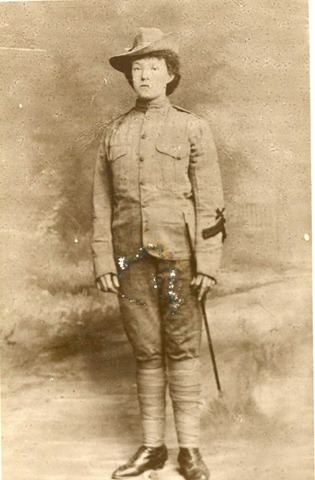
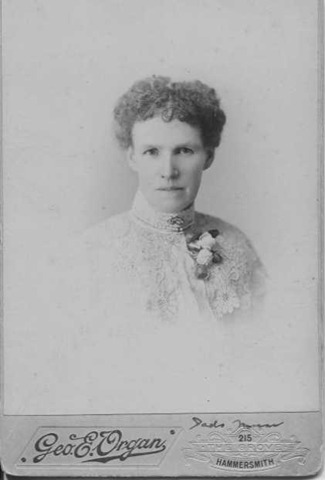

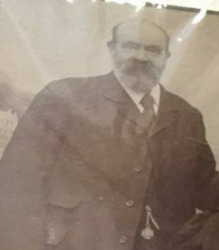
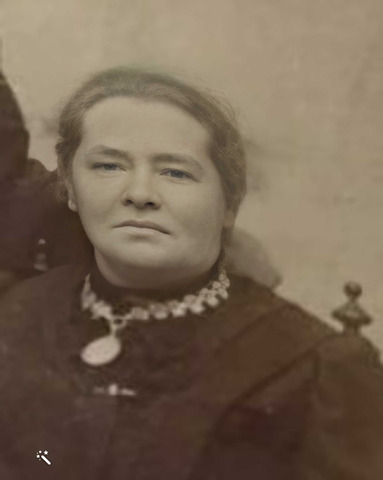
My maternal grandfather recently sent me these photos of his ancestors; Australians and Britons from the Tucker, Hinves, Crook, Masterman, Rowlands, and Sammells families. Alt text for more info.
127 notes
·
View notes
Text
#tumblr polls#poll#random poll#i love polls#poll time#halloween poll#my polls#polls#daily polls#polls polls polls#ancestry dna#family history#genealogy#parents#silly poll#appearance#Look alike#twins#siblings#mum#dad#mom#fam#family#families#fun#frog#frogs#froge#froges
55 notes
·
View notes
Text
My Granda, who was born in 1929 and died in 2019, told me often when I was a little kid of the disabled veterans of WWI who lived in his close in Glasgow growing up.
They always told him of the horrifying meat grinder of war and how it was a complete scam; that they were haunted by the men they may have killed - they rarely really knew who they were firing at - who were other working men exploited by other rich egomaniacs.
I know they were a big part of why he joined the Communist Party as a young man, though he left when he saw how they were parroting authoritarian lies from horribly similar exploiters in different outfits in the USSR. He was never diagnosed, but I am 100% convinced my Granda was autistic. I think it’s part of why we got on so well - he was also perpetually unable to deal with doing shit because people with wealth told you so.
I used to talk about socialism and anarchism to him when I was a teen and he did remain hopeful that grassroots movements could still do good and prevent exploitation, and that authoritarianism in the USSR and China didn’t change that.
And he always passed on precisely what the WWI veterans he remembered so strongly told him; “Anyone who talks about war as glory is scamming you.”
#socialism#anarchism#there’s no fucking glory#anyone who talks about war as glory is scamming you#authoritarianism#modern history#family history#working class history#ww1
131 notes
·
View notes
Text
ykno a century was a long time ago but given that 3-4 generations in a family usually have contact with each other, in the context of family history, it really isn't that long ago. for example, i knew my great-grandmother (born in 1919). i was young when she died, but old enough to remember her death clearly. i remember how much her absence was felt, since she was the matriarch, and i know she encouraged my art. and she knew her grandmother, born in Ireland close after an Gorta Mór.
that's 7 generations, connected within 3 degrees of separation. i can only imagine how much was lost in that time, and how much was passed on. did my 3rd great grandmother love art like me? what did she go through? how did the experiences of her parents and family impact her, and how does that trickle down to me? i may never know but. it's something that makes me feel more connected and significant to humanity to think about.
even if you never have children yourself, you can undoubtedly experience this connection too. just think about all the people who fought for your rights, all the people who had passion for something you love and developed it greatly. all the people in your day to day life who add a spark to your day, the friends who have helped you grown. we may all turn to dust one day, but your presence will hold for centuries whether you - or anyone alive then - knows it or not.
#julian rants#genealogy#family history#ancestry#ireland#irish diaspora#irish history#humanity#hopepunk#hope#community#reasons to live
112 notes
·
View notes
Text
I love you ancestors who spoke a different language than me I love you ancestors who looked at the moon I love you ancestors who did the best they could under the circumstances I love you ancestors who are forgotten I love you ancestors whose names flicker by in my history books I love you ancestors who were brave and survived despite the odds I love you ancestors who lied on the census I love you ancestors who people say I resemble I love you ancestors who made hard choices I love you
1K notes
·
View notes
Text
Okay, I want to take the time to talk about boobs, and hear me out.
It's important.
I haven't been around much lately, I'm okay. I've been busy taking care of my mother in law with dementia. But, my sister recently found out she has breast cancer.
She had her first mammogram at 41, and unfortunately, we found out yesterday, it has spread. We are still hopeful it's treatable, but y'all. If you are 40, or about to be, or know someone who is, do not put off getting a mammogram.
Get one asap.
Procrastination is not in your favor with this.
If you have a family history of cancer, talk to your doctor and get a mammogram and genetic testing sooner than 40. I'm 38, just had a mammogram and found out I also need to have an mri every six months as well because my boobs are dense and apparently that increases risk.
You can even get them younger.
Sooner is better.
Don't ignore symptoms. My Mom put off seeing a Dr for pain in her side and passed away from bile duct cancer. I cannot emphasize enough to listen to your body, and go see your physician.
I knew someone who's cough turned out to be lung cancer, someone else's painful urination was bladder cancer.
Check that prostate and colon too, all the bits, whatever bits you've got, get them checked. Please.
If you've been putting something off, this is your sign to make the appointment and get it done.
If you've never been checked, it's not too late. If you think you're too young, you are not.
So please, talk with your friends, family, relationships, situationships, frenemies, neighbors, whatever people you have, help keep them safe.
29 notes
·
View notes
Text
When I was 3, my grandfather made a wooden pickup truck for me. His name, my name, and the date are engraved on the bottom of the truck.
We found it in storage last weekend.
It's TH's now.
Sadly, my grandfather died before either of his great grandchildren were even considered, so TH and the Cousin won't get to meet him. I'm glad that we have these tangible pieces of his love and the joy he had in his family to pass on.

Image description: a toy pickup truck, made of light colored, varnished wood, on a darker wood floor
74 notes
·
View notes
Text
We ask your questions so you don’t have to! Submit your questions to have them posted anonymously as polls.
#polls#incognito polls#anonymous#tumblr polls#tumblr users#questions#polls about relationships#submitted nov 25#grandparents#family#family history
1K notes
·
View notes
Text
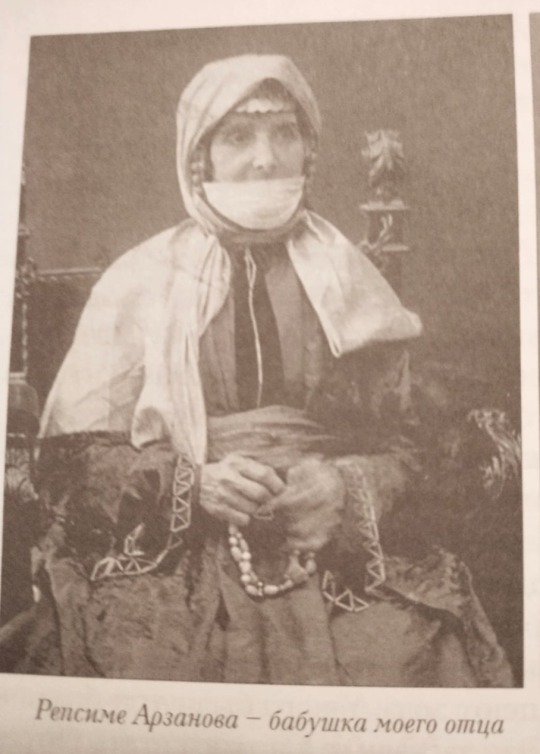
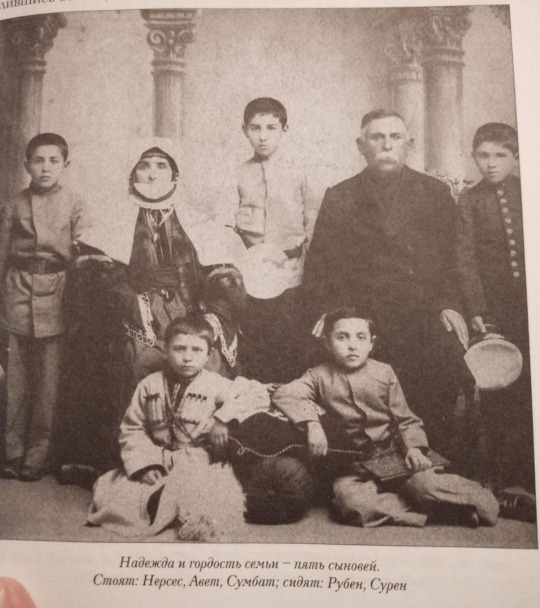
a photograph of my great-great-great grandmother, Rapsime Arzanova, and her husband with their 5 sons. those that stand: Nerses, Avet and Sumbat (my great-grandfather). Those who are sitting: Ruben and Suren.
#art#assets#русский художник#illustration#family history#history#caucasus#armenians#armenia#Armenian family#old photos#pedigree#Caucasian culture#Armenian culture#nation#nationality#National clothes#folk costume#folk clothes
33 notes
·
View notes
Text
to anyone with ancestors who survived An Gorta Mór (The Great Famine, who also has a binging/restricting eating disorder... i can guarantee you, there has got to be at least one person in your lineage who would be happy to see you eat well. your ancestors who starved, who had to see their loved ones get sick or die... they would be happy to see you healthy, and deeply saddened to see you in this pain - yes, even if you're fat. especially if you're fat.
if you don't have it in you to eat for your own wellbeing... i hope that maybe, it might help to think of them. to do it for them, the people who survived such great pain, such great hunger, and would never want you to feel that pain too. you are not alone. the love they had for their descendants lives on in you. you are made of the survival of the irish... in spite of colonialism and mass death, no matter how disconnected from your family's culture you may be.
you are loved.
#softspoonie#the great hunger#irish#irish diaspora#irish heritage#irish history#eating disorder#anorexia#bulimia#eating disorder recovery#ancestry#family history#cultural genocide#mental health#mental health positivity#eating disorder positivity#disordered eating#mentally ill#mental illness#physical illness#chronic illness#disabled#disability positivity#self care#self love#love#the great famine
50 notes
·
View notes
Text
LGBTQ+ terminology - as Gaeilge ☘️🌈
Now, pardon me, but before I get to the meat of this post, the LGBTQ+ stuff, which is what I know we're all looking for 😁 I gotta do a little rant first
😌🙏😙💨
While I deeply appreciate the efforts of several groups over the last couple of years to translate English-language terminology and understanding of gender and sexuality, and the digression and non-conformity belonging thereto, I believe that, ultimately, it's a placeholding wedge-in that contributes to the wider problem of Anglicisation, or more accurately "Béarlachas", as it affects the Irish Gaelic language.
(Yes, I do be calling the language Gaelic - No, I am not American. I have a reason for doing so which I'll elaborate on in another post*.)
Now, Béarlachas is *not* borrowing and loaning words from English and using them seamlessly in Irish - a thiarcais, Irish speakers have been under the yoke of that language for over nine-hundred years, stating that we cannot adopt and adapt its words to our language is tone policing and language oppression of minority language speakers at it finest 🤌.
No, "Béarlachas" is the enforcement of the English-language thought process onto Irish. It comes from a place where thinking that English is more advanced, and has developed ways of understanding, and assuming that no other language, or in this case, Irish, has not caught up, or needs to rely on English.
You can see how this is a problem, right?
Queer people have always been everywhere. People distorting gender and sexuality norms have always been around. I remember growing up and an elderly family member from deep deep rural Ireland saying "Them townies always be looking down and calling peeple transvestites - sure out here that's only Amateur Dramatics!"
One of my parents has a story of knowing an "Auntie Bob" in their local town, someone who lived on the edge of the village, but not shunned by any modern transphobia standards.
There are so many queer stories lying under the surface - so plentiful that I'd encourage anyone to talk to older family members, or elderly people in your community. Now obviously, they won't have our modern terms like "queer" and "transgender" for them, but the stories, the people, are there 🎊.
- rant ends -
Anois! What we've all been waiting for:
LGBTQ+ slang, slurs, terms and explanations in the Irish language 🏳️🌈🥳
Starting off, what does the Irish language call "gender" and "sexuality"??
Sex (the act) is usually referred to by learners, second-language speakers and official dictionaries as "gnéas" - but a lot of vernacular speakers refer to it as:
Collaíocht
The word comes from the word collaí, meaning "carnal / sexual", which itself comes from the word colla, which in turn is a variant plural form of the word colainn, meaning "body". So a way of understanding collaíocht, would be thinking of it as meaning "body-ing", which ultimately, I think, is a cuter, more accurate and reflective way of referring to the act than Sex.
Gnéas
This is the word most dictionaries have down to describe the act, but let's have a fresh look at the word. Just as teas (heat) comes from the word te (hot), the word gnéas comes from the word gné. The following is the entry from the Ó Dónaill (1977) 'Irish-English Dictionary' for 'gné':
1. Species, kind...
2. Form, appearance
Form, appearance... further down the entry, we also have the word "aspect", as in "every aspect of the matter"... I wonder... sounds an awful lot like gender here to me - and at the time of Ó Dónaill, Ua Maoileoin and de Bhaldraithe composing their dictionaries, 'sex' and 'gender' would have been interchangeable terms.
While I have yet to look into this further, I have to wonder whether ascribing "gnéas" to the act of sex, rather than sex as in "gender" is a case of Béarlachas: applying English-language understandings to Irish-language words.
Which brings me around to:
Inscne
The word that I suspect of being a definite case of applying an English-language understanding to an Irish-language word. Inscne comes from Sean-Ghaeilge "insce", meaning a saying, a statement or word, and was applied to the sense of grammatical gender, or 'noun class'. Modern groups and most second language speakers apply the word to the English understanding of gender (most vernacular speakers I know simply borrow "gender" from English). Again, my own opinion and proposition, would be to use gnéas for gender, collaíocht for the act of sex, and cineál for sex (body type).
Cineál
Furthermore, Scottish Gaelic 🏴 also uses 'gnè' for gender, and 'tar-ghnèitheach' for transgender. The word for sex as in body type is 'seòrsa' - which is equivalent to the Irish cineál, which also has been used to describe body types. I think this understanding of the word cineál would be great to separate the traditional understanding of gender = body, and help us in any case to destigmatise bodies 🤷.
*The above have been kinda the groundwork. Here come the slang and slurs™️ proper*
Piteog (derog.)
This is the one most people who've done a little digging will've come across. The explanation that usually comes with it is 'effeminate man, sissy' or 'fairy (derogatory)' - but let's break down this word more, and discover the misogyny, reductiveness, wlw-erasure and why it to really only refers to mlm and transfeminine members of the LGBTQ+ community:
Pit is the Irish for 'vulva'. -óg or -eog is a suffix that kind of implies "like" - e.g. a camóg is something that's kinda cam (bent), i.e. a hurley. Piteog literally means "something like a vulva" 🤷.
Buachaill bán
No, not the Whiteboys of 1800s agrarian agitation in Ireland 🤣, but again another term for men-loving men. I think it's kinda poetic that the rainbow 🌈, the modern global symbol of LGBTQ+ people, is made up white light through a prism, and that the colour white was used to describe a sector of LGBTQ+ people in Ireland fadó.
*The only reason I'm saying this is an mlm term is because I've never come across it being used to describe wlw or other queer identities - but perhaps it could be used in a broader context?? Idk.
Lúbtha ("lúpthaí" i gConamara)
Literally translates as "bent". Lúb as a verb means "1. to loop, 2. to enmesh /to net, 3. to bend". Those in/from the Gaeltacht that I've spoken to of an older generation use it casually, with no obvious negative intent behind it, tho I've come across several middle-aged people who are scandalised if you say it (to the same extent as saying someone's 'bent' in English) but I dunno if that is from intergenerational difference is use (whether it became a slur in the last half-century or so) or if it comes from Gen X aversion to calling people 'bent' in English, and them correlating it to Lúbthaí in Irish.
Cam (slur)
Cam is a slur. While yes, it simply means 'bent', it carries the connotations of "crooked, sly, conniving" and in its usage, it is almost always unmistakeably intended as an insult.
Aiteach
I just want to put this on the list to discuss it. "Aiteach" is a modern construction. If you look up 'queer' in the dictionary, one of the entries you'll get is "ait", meaning 'pleasant, likeable, comical, fine, queer'. Ait is still used in everyday language (we all know the phrase "Is ait an mac an saol"), and was never used to describe LGBTQ+ people, but because of its positive connotations and appearance under "queer" in the dictionary, -each was added onto the end to describe LGBTQ+ people without having to use the abovementioned slurs. Yes, it is borderline Béarlachas, but most young Gaeil (Gaeltacht natives / vernacular speakers) I know don't have a problem with it 😁.
Gearrán
I've noticed the conspicuous gap of wlw specific terminology in this list. What can I say, 100 years of Catholic nationalist censorship on top of a patriarchal organisation of society makes them hard to come by. However, while I've never heard this word used, I've been seeing Gearrán more and more in online spaces lately.
(No, it's not related to gearán (complaint), and the two r's change the vowel sound of the 'ea')
It translates to a gelding, or a pack-horse, and according to Ó Dónaill (1977), can also mean a "Strong-boned woman; drudge, jade", and if that isn't a euphemism for a butch lesbian, idk what is.
Alright, that is an infodump and a half!
And there's still so much I could say... Lads, let's just say there's loads more to come 🤣
Slán tamaill 👋
#gaeilge#irish language#gàidhlig#gaelic#LGBTQ#lgbt history#lgbtq people#vernacular#indigenous language#intergenerational#relations#family history#LADT#LADT7#irish#postáil fhada#tráchtas#essay
363 notes
·
View notes
Text
My mom got a DNA test done and it didn’t tell us anything we didn’t already know.
Ukrainian Ashkenazi.
The Wiseman Family.
We know where we come from.
We went as far North as we could when there was nowhere safe for us in Eastern Europe. We made a home for ourselves in Lerwick, Scotland.
Scotland, the only country in Europe that has never expelled Jews, kept us safe for a while, but a poor family could only live at the end of the world in the Arctic Circle for so long. There were too many fishermen and not enough people to buy fish.
Between wars, we went South again, to Germany.
We didn’t stay.
I am grateful every day that my great-great grandfather could see that there was trouble coming for his family. He sent his four children and wife to Canada and followed the next year. So many of us did not.
We found a place in Toronto where we watched what happened to our loved ones in Europe. We forgot Hebrew. It was easier that way.
My great-grandmother kept secrets:
Her first daughter, born out of wedlock, was raised by her parents as one of their own.
Her second daughter was told that her father was dead, rather than divorced away (it was a different time— divorce was shameful, death was inevitable).
Her job was mysterious. Officially, she worked for the state department as a pay roll clerk. I don’t know why any pay roll clerks would have traveled to Russia during the Cold War, but she did many times.
The secret she kept the longest was her heritage. As far as anyone knew, she was a severe Scottish immigrant and fiercely proud of it. Only my mother, her favorite, had suspicions.
When Granny Annie Wiseman died, she left everything to her favorite granddaughter. The money, the house, and everything inside it. Every memory of who we are.
Years later, my mother fell in love with a Jewish man. They raised me together. I had the privileges and the pains of knowing who I was. I carry our family burdens and I honor them.
Someday, I will name my daughter after the woman I never met who passed our heritage to me through the simple and brave act of survival. Her assimilation kept us alive. Her secrets got me here. She left the breadcrumbs that let us find our way home.
We know where we come from.
21 notes
·
View notes